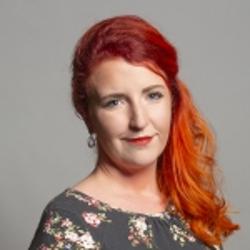Music: GCSE
(asked on 30th January 2020) - View SourceQuestion to the Department for Education:
To ask the Secretary of State for Education, how many pupils were entered for GCSE music in (a) Sheffield City Council area, (b) Yorkshire and the Humber and (c) England in each of the last five years.
The number of pupils[1] entered for GCSE music[2] in Sheffield, Yorkshire and the Humber and England from 2014/15 – 2018/19 is shown in the table below:
Region/Local Authority[3] | 2014/15 | 2015/16 | 2016/17 | 2017/18 | 2018/19[4] |
England | 38,851 | 37,218 | 34,557 | 30,926 | 30,655 |
Yorkshire and The Humber | 3,354 | 3,268 | 2,955 | 2,446 | 2,334 |
Sheffield | 239 | 251 | 250 | 224 | 226 |
Please note, any trends observed in the above figures should be treated with caution and considered against changes in methodology over the five year period, changes in cohort and more recently, changes in entry behaviour from schools following the introduction of 9-1 reformed GCSEs across all GCSE subjects including music in 2018. Since 2014/15, the percentage of the GCSE cohort in state funded schools who take music GCSE has fluctuated but remained broadly stable at between 6 and 7%. It currently stands at 6%.
For more information on GCSE reform and changes in key stage 4 performance tables, please see the secondary accountability measures guidance here:
We want all pupils to have a high quality music education. The Department is proud of and will be refreshing its National Plan for Music Education, which sets an ambitious vision for music education for every child, regardless of their background. The subject is compulsory in the national curriculum and this government is providing funding of over £300 million for Music Education Hubs between 2016 and 2020. In January we announced a further £80 million investment in Hubs for 2020-21. Music Education Hubs support schools to drive up the quality and consistency of music education and our national funding formula for Hubs, based on local pupil numbers means extra weighting for pupils in receipt of free school meals. Music Education Hubs have done excellent work to ensure there is more equitable access to music education. We also provide £500,000 per year to In Harmony, a national music programme that aims to inspire and transform the lives of children in deprived communities through ensemble music-making.
This Government supports exceptionally talented young musicians from low-income families to fulfil their potential through the £30 million per annum Music and Dance Scheme. The scheme helps ensure that all children and young people with exceptional ability can benefit from world-class, specialist training, regardless of their personal circumstances.
[1] Includes attempts and achievements by these pupils in previous academic years.
[2] In line with discounting rules, only one attempt is counted.
[3] Local Authority and Region figures cover achievements in state-funded schools only. They do not include pupils recently arrived from overseas and so will not match with state-funded figures in the published data. The 'England' line is a sum of Local authority figures and will differ from the national totals published.
[4] Data for 2014/15 – 2017/18 is final, data for 2018/19 is provisional.

